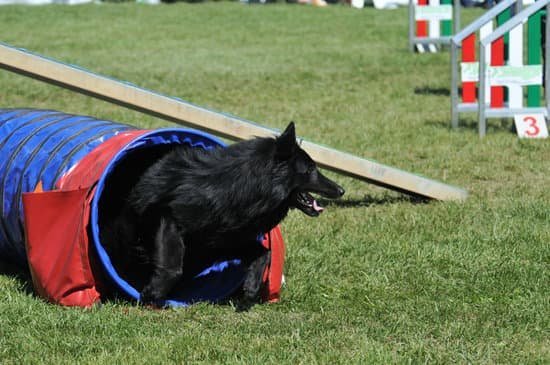In order to train your dog to walk off leash, you will need to start with basic obedience commands such as sit, stay, come, and down. Once your dog has mastered these commands, you can start working on off leash walking.
The first step is to find an open area where your dog can be safely off leash. Make sure the area is big enough for your dog to roam around in and has no distractions.
Once you have found an area, start by calling your dog to you and giving them a treat. Once your dog has come to you, give them another treat and tell them to “stay.” Once your dog has stayed for a few seconds, give them another treat and release them.
Next, start walking away from your dog while giving the “come” command. If your dog comes to you, give them a treat and tell them to “stay.” If your dog does not come to you, give them a short tug on the leash and repeat the “come” command.
Once your dog has mastered coming to you when called, you can start walking them in different environments such as around other people and dogs. Make sure to always have a treat on hand to reward your dog for good behavior.
Off leash walking can be a fun and rewarding experience for both you and your dog. With a little bit of patience and practice, your dog will be walking by your side off leash in no time.
Dog Leash Training
There are a variety of reasons why dog leash training is important. Perhaps the most obvious reason is that it enables you to keep your dog under control. A well-trained dog on a leash will walk by your side and will not pull you around. This is especially important when you are out walking in a public place.
Another reason why leash training is important is that it can help keep your dog safe. A dog that is not under control may run into the street and get hit by a car, or may run away and get lost.
Leash training can also be helpful in preventing fights between dogs. If two dogs encounter each other while on leashes, the leashes will keep them from getting too close to each other and from fighting.
Leash training is also a good way to teach your dog some basic obedience commands. A dog that knows how to walk nicely on a leash will also be more likely to respond to other commands such as sit, stay, and come.
Leash training can be a bit challenging, but it is definitely worth the effort. With a little patience and perseverance, you can have a well-behaved dog that is under control and safe, no matter where you go.
How To Train Your Dog To Not Need A Leash
There are a few things you can do to train your dog to not need a leash. One is to always keep them on a leash when you are outside, even if you are in a fenced in area. This will help them get used to staying close to you. You can also train them to come when called. When they do, reward them with a treat. If they don’t come when called, use a leash to bring them back to you. Finally, make sure you are consistent with your commands and rewards.
How To Train Your Dog To Be Off The Leash
There are a few things you can do to train your dog to be off the leash. The first is to create a positive association with being off leash. This can be done by taking your dog for walks off leash and providing plenty of positive reinforcement when he or she behaves appropriately. You can also play fetch or other games in a safe, enclosed area where your dog can be off leash.
The next step is to start training your dog to come when called. This can be done using a food lure or by playing a game of fetch. Once your dog is coming when called consistently, you can start working on having him or her stay in one spot. Begin by having your dog stay in one spot for a few seconds, and gradually increase the amount of time he or she stays in place. Once your dog is able to stay in one spot for a few minutes, you can start working on having him or her come when called from a distance.
If you are consistent with your training, your dog will eventually learn to be off the leash and will be able to behave appropriately in a wide variety of situations.
How Do You Train A Dog To Walk Off Leash
?
The first step in training your dog to walk off leash is to make sure that he is reliable when walking on a leash. If your dog tends to pull on the leash or run away when on a walk, he will not be ready to walk off leash. You will need to work on basic obedience commands such as sit, stay, come, and heel with your dog before attempting to train him to walk off leash.
Once your dog is obedient when walking on a leash, you can begin to train him to walk off leash. The key to this training is to start slowly and gradually increase the distance between you and your dog. Begin by having your dog walk by your side in a small area, such as your backyard. Once your dog is comfortable walking by your side in a small area, gradually increase the size of the area. Once your dog can walk by your side in a large area, start to slowly move further and further away from him. If your dog starts to pull or run away, immediately return to his side and praise him for walking calmly by your side.
It is important to always keep your dog on a leash when first training him to walk off leash. This will help to ensure your dog’s safety and will also help him to stay focused on you. Once your dog is reliable when walking off leash, you can begin to allow him to roam freely in open areas. However, it is important to always keep an eye on your dog and to never leave him unsupervised.

Welcome to the blog! I am a professional dog trainer and have been working with dogs for many years. In this blog, I will be discussing various topics related to dog training, including tips, tricks, and advice. I hope you find this information helpful and informative. Thanks for reading!





